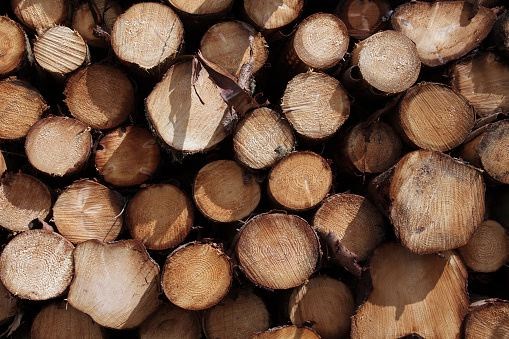Russian lumber exports to China have surged this year and include a staggering shipment of 1.5 million cubic metres in April alone, according to a new report from industry analyst Wood Markets Group.
In total, Russian exports to China since the start of the year are up 50 per cent over the same period in 2015 at the same time B.C.'s exports to China slipped by three per cent.
The surge into China was likely an adjustment by Russian producers to make up for a short-term disruption of their sales into the Middle East and North Africa, said Wood Markets president Russell Taylor.
However, the speed at which Russian companies were able to divert shipments to China was surprising and indicative of progress they have made in developing supply chains into Asia at the same time B.C. is attempting to improve its own inroads into the region.
"Two months of data don't make a trend, but it's a wake-up call, I guess, to those who thought the (lumber) supply base in China was pretty stable and well managed," Taylor said. "Well, it is not."
In April, B.C. shipped 575,000 cubic metres worth of lumber to China, down 16 per cent from April of 2015. Over the first four months of 2016, B.C.'s shipments add up to just under 2.2 million cubic metres, a three-per-cent decline from the same period last year.
For decades, B.C.'s lumber industry was dependent on exports into the U.S. housing market until it started courting China and other Asian markets in a bid to diversify sales.
That bid started paying off, with good timing, as B.C. producers started making big increases in sales to China starting around 2008, just as the U.S. housing construction market was collapsing.
Since then, China has become B.C.'s second-biggest market for lumber and a strong counterweight to the province's dependence on the U.S. In 2015, B.C. producers exported 6.5 million cubic metres of lumber to China, versus 15.5 million cubic metres to the U.S.
However, Canadian exports to China haven't grown much since 2011 due in part to supply issues on the Canadian side of the trade relationship, Taylor said.
At the same time, he has observed a buildup of the timber harvesting and processing industries on both sides of the China Russia border in the Siberian hinterlands.
"We're seeing a lot of different things from Russia and China that we weren't seeing even a year ago," Taylor said. "That's how fast things are changing."
He added this dynamic might become a bigger issue to B.C. producers if negotiations between Canada and the U.S. over a new softwood lumber trade agreement fail and the U.S. Department of Commerce imposes new duties on Canadian lumber imports.
At that point, Taylor said Canadian lumber producers looking to divert more of their exports to China, they could find themselves squeezed out.
"We're seeing now that Russians can divert huge volumes into markets that we participate in," Taylor said.



